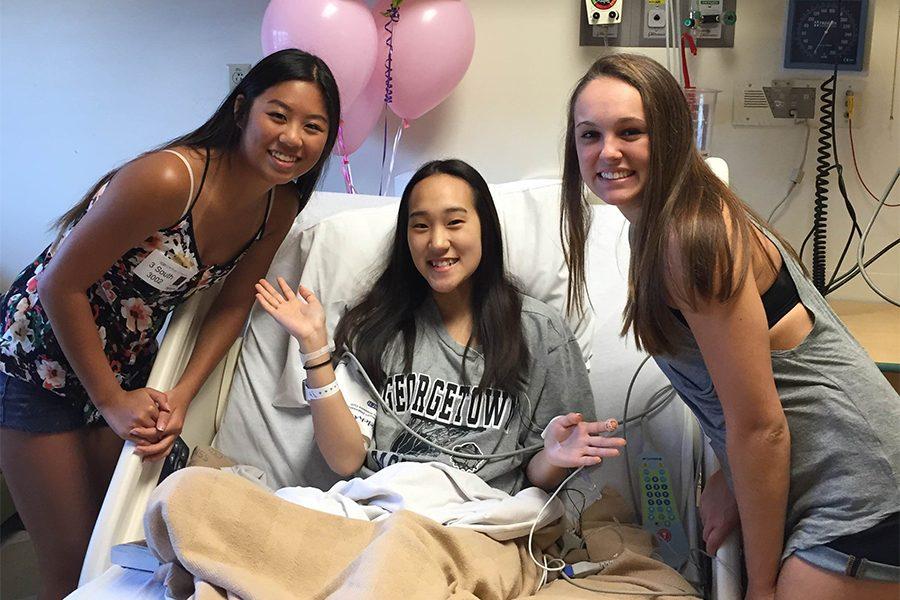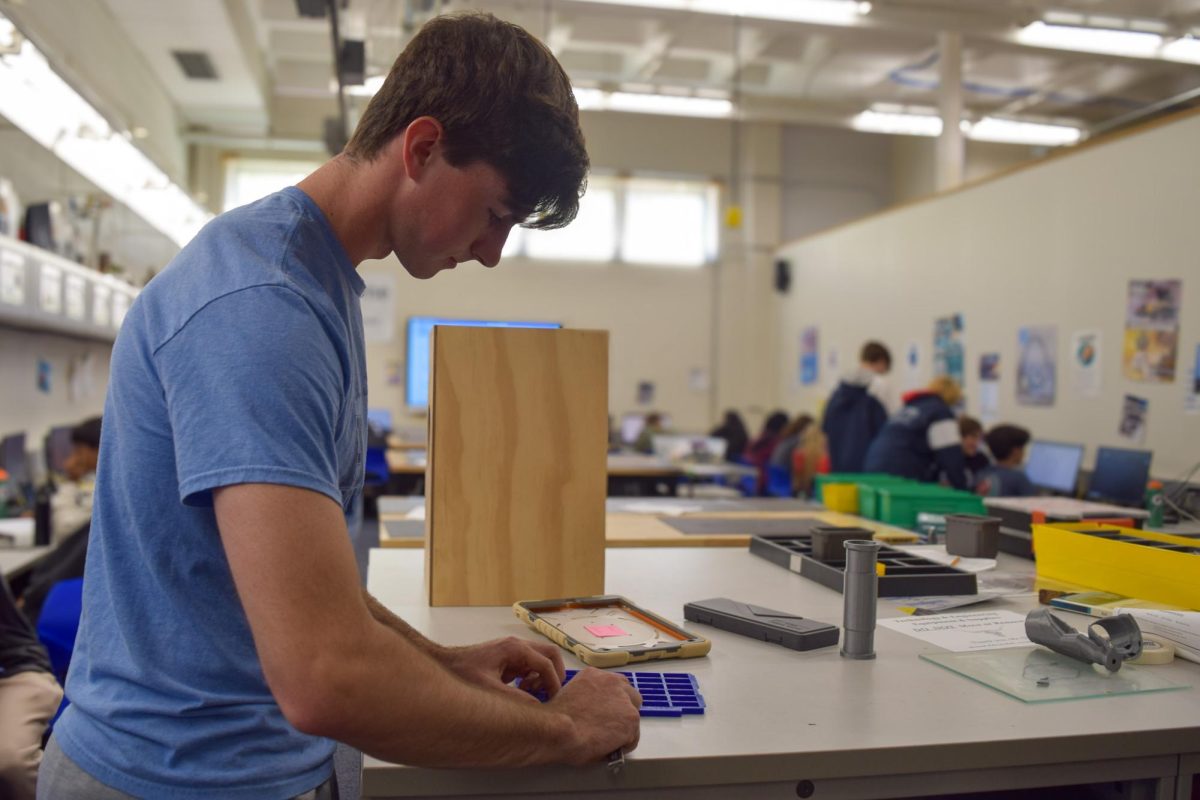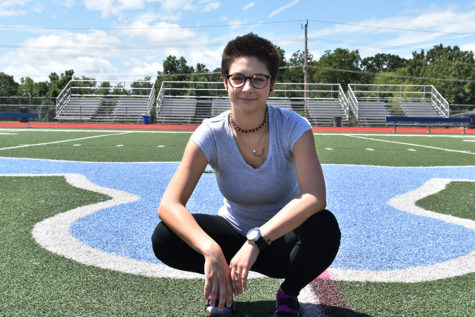In the fourth grade, a biopsy procedure changed the life of senior Jenny Chai forever. It found that Chai has Focal Segmental Glomerulosclerosis, or FSG, a rare form of kidney disease.
FSG attacks segments of the kidneys’ filtering system, causing serious scarring in children and adolescents, and kidney failure in adults. Despite these obstacles, new treatments are being discovered daily. Rituximab, an IV infusion procedure that takes place over the course of weeks or months, is a treatment for many diseases, including leukemia and arthritis. As of today, more are being studied to evaluate whether or not it works for other diseases.
“I would have one treatment one day per week,” Chai said. “I kept getting really bad migraines at first,” Chai said, “but they wore off after the first couple treatments.”
Chai started the treatments because her doctors had recommended it, and they told her that it was more effective than the pills that she already took.
“[After the treatments] she was definitely weaker than normal, but she was still cracking jokes and acting herself,” senior Annie Doig, a good friend of Chai said. “We really just wanted to make her happy since she had been there alone for the whole day.”
Chai’s treatments were over a 12-hour period, requiring her to stay at the hospital all day on bedrest.
“The medicine entered her body through IV very slowly, so every time she received a treatment she’d have to sit in the hospital basically all day,” senior Claire Pellegrino said. “Visiting her was kind of strange because it’s weird to see someone that you see so often lying in a hospital bed.”
Since she is currently in stage two of the disease, Chai said that she is not really scared of the future.
“It is scary because with kidney disease, you don’t know what’s going to happen next,” Chai said. “But with the new treatments and all of the support I have, I hardly ever remember I have the disease because my life is so normal. There are people with diseases way worse than mine out there so I’m thankful.”



![Focused on providing exceptional service, sophomore Darsh Mahapatra carefully cleans the door of a customer’s car. Mahapatra has always believed his customers deserve nothing less than the best. “[If] they’re trusting us with their car and our service, then I am convinced that they deserve our 100 percent effort and beyond,” Mahapatra said.](https://pwestpathfinder.com/wp-content/uploads/2025/10/DSC_0018-1200x800.jpg)
![Sophomore Aleix Pi de Cabanyes Navarro (left) finishes up a soccer game while junior Ava Muench (right) warms up for cross country practice. The two came to Parkway West High School as exchange students for the 2025-2026 school year. “The goal for the [exchange] program is to provide opportunities for both Parkway students and our international exchange students to learn about other cultures, build connections and become confident, capable, curious and caring — Parkway’s Four C’s — in the process,” Exchange Program Lead Lauren Farrelly said.](https://pwestpathfinder.com/wp-content/uploads/2025/10/Feature-Photo-1200x800.png)

![Gazing across the stage, sophomore Alexis Monteleone performs in the school theater. The Monteleone family’s band “Monte and the Machine” has been releasing music since 2012, but Alexis started her own solo career in 2024 with the release of her first single, Crying Skies. “My whole family is very musical, [and I especially] love writing [songs with them],” Monteleone said.](https://pwestpathfinder.com/wp-content/uploads/2025/09/DSC7463-1200x798.jpg)
![Amid teaching a lesson to her AP Calculus BC class, Kristin Judd jokes alongside her students in their funny remarks. Judd has always enjoyed keeping the mood light in her classroom, along with on the volleyball court. “[I enjoy] that side talk where you see [or] overhear a conversation and chime in, or somebody says something funny,” Judd said.](https://pwestpathfinder.com/wp-content/uploads/2025/09/image-1200x730.jpg)
![Eyeing the ball, junior Ella McNeal poses for her commitment pictures at Clemson University. McNeal’s commitment comes after months of contact with top Division 1 soccer programs. “ It has taken a lot to get to where I am, but I know that [what] I've already been through is just the beginning, and I can't wait for what is to come,” McNeal said.](https://pwestpathfinder.com/wp-content/uploads/2025/09/IMG_4926-1200x900.jpeg)


![Senior Adam Zerega stands with senior Dexter Brooks by farm equipment. Zerega often worked with friends and family on his farm. “I've been able to go to my family's farm since I was born. I [spend] at least three weekends a month [on the farm], so I'm there all the time,” Zerega said.](https://pwestpathfinder.com/wp-content/uploads/2025/04/IMG_4872-1200x900.jpg)

